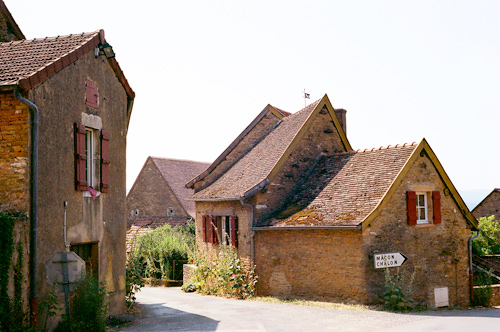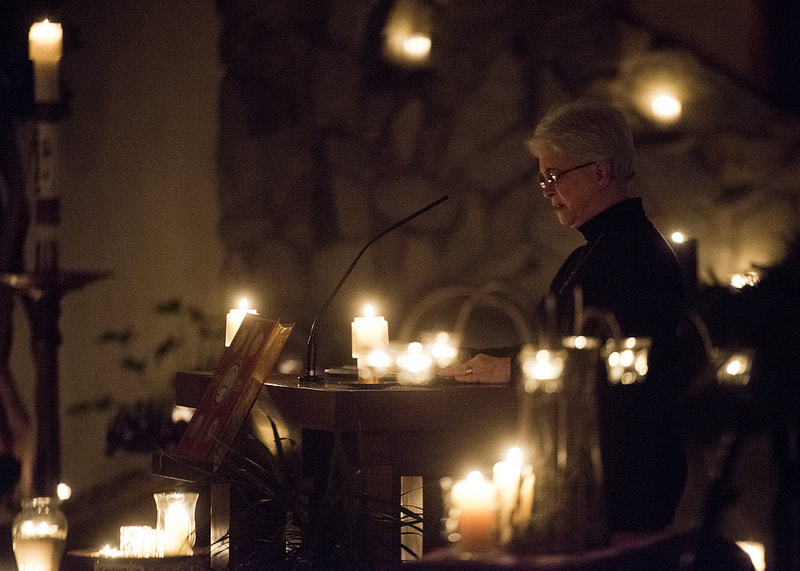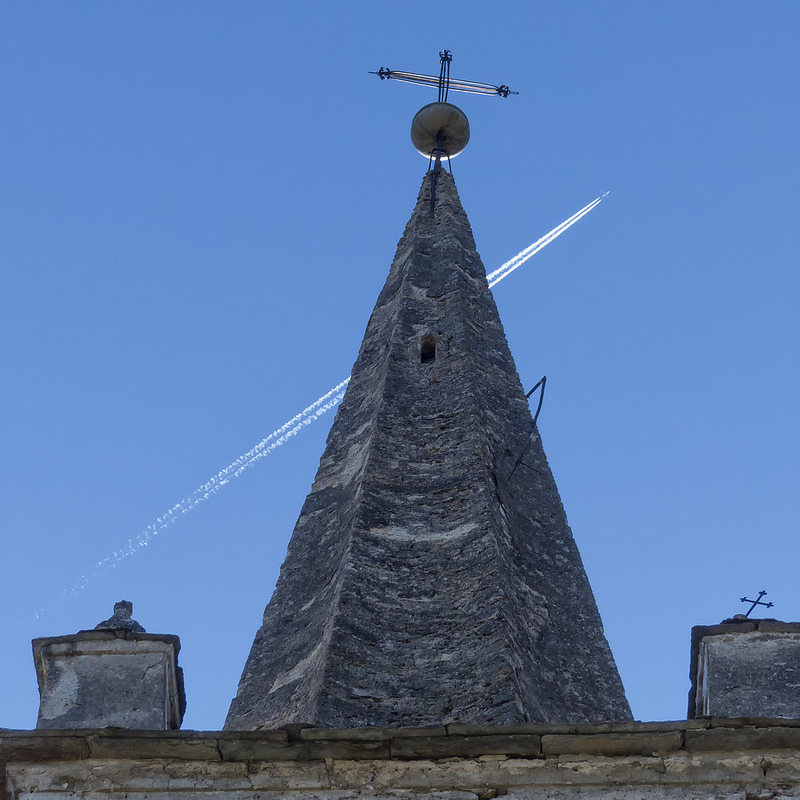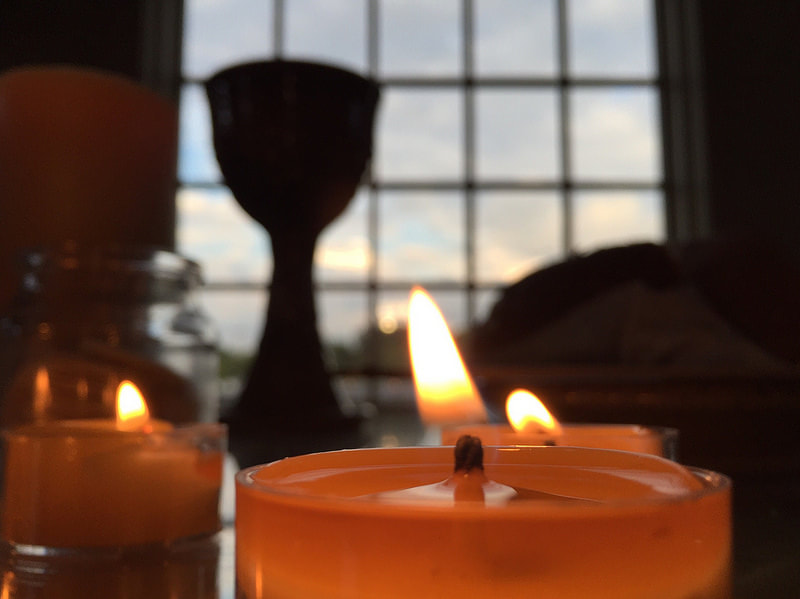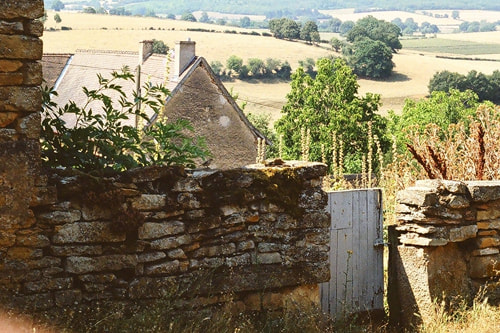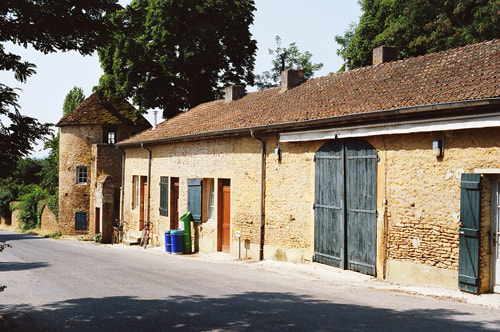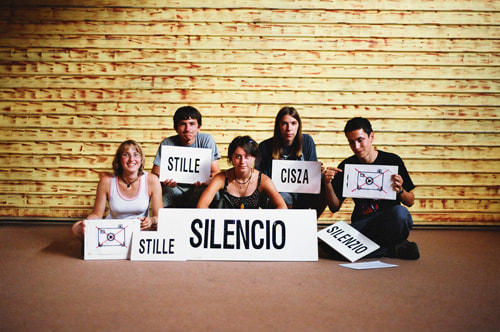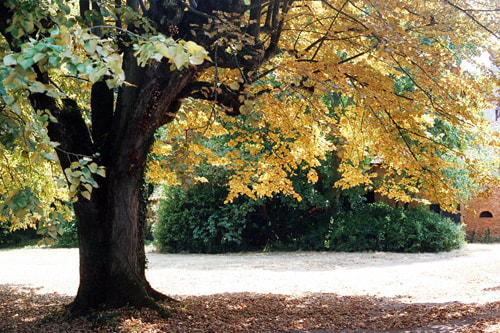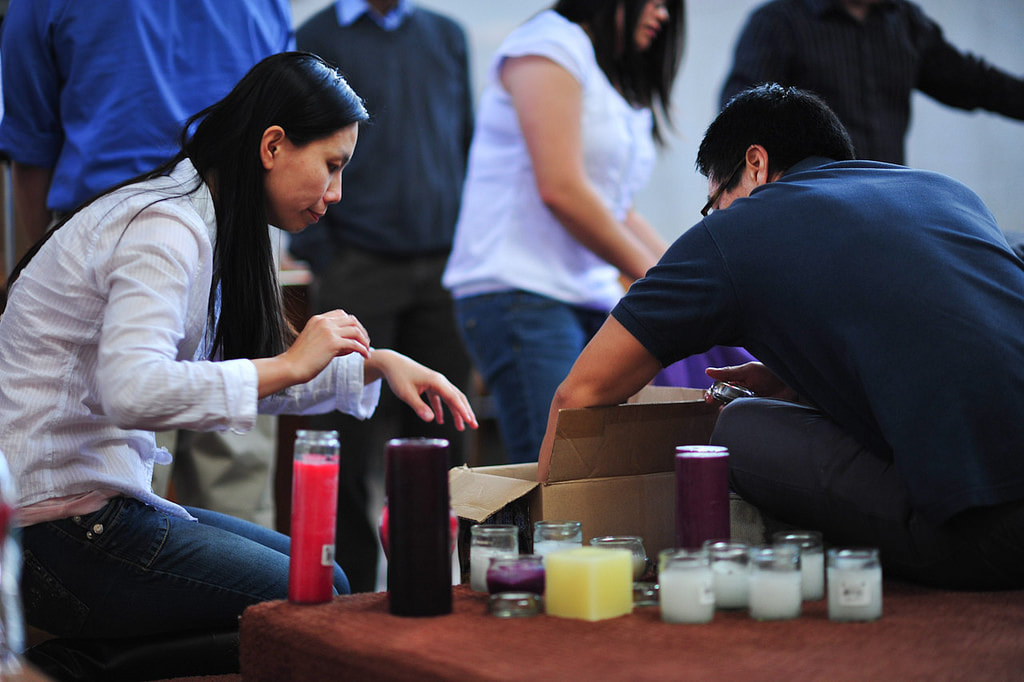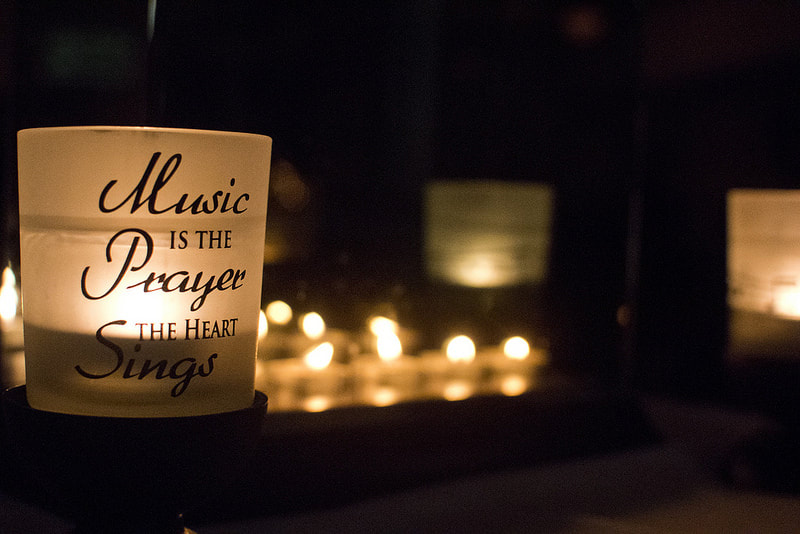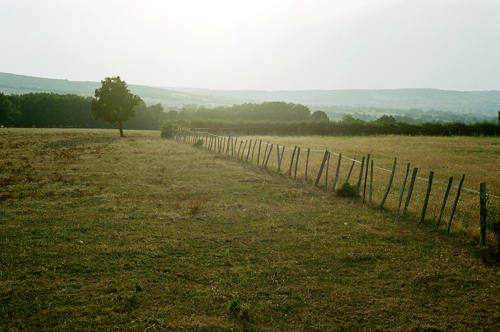- Home
- Process Worldview
- Community
- Art and Music
- Whitehead and Process Thinking
- Podcasts
- Spirituality
- Ecological Civilization
- Education
- Contact
- Social Justice
- Science
- Animals
- Sacred Poems
- Whitehead Videos
- Index of All Titles
- Practicing Process Thought
- Process Spirituality: A Spiritual Alphabet
- Recent Posts
Taize, France: A Window into the Radical Hospitality of God
by Teri Daily
|
A sermon on Matthew 25:14-30...
The monastic community in Taizé, France has its beginnings in the early 1940s when Brother Roger purchased some land with an old, run-down house and surrounding buildings. It was during the Second World War, and Brother Roger felt called to provide safety and housing to those in need. With the help of his sister, Genevieve, the Taizé community became just such a place. The refugees sheltered there included Jews fleeing persecution. As the war drew to a close, Genevieve opened a home for children whose parents had been killed during the war; and on Sundays, German prisoners-of-war would come to the Taizé community to worship. Over time, a growing group of men committed themselves to living a gospel of hospitality and love in the now famous monastic community of Taizé. It remains “a parable of community,” an ongoing experiment in reconciliation that draws together Protestant and Catholic Christians while displaying an open, welcome stance toward those of other faiths as well. Today people travel to Taizé from all over the world to experience and share in the brothers’ hospitality – to share in what is known as “a pilgrimage of trust on earth.”[1] Taizé is not, however, an idyllic place immune from the risks and tragedies of the world. On August 16, 2005, Brother Roger was stabbed to death during the community’s evening prayers. His assailant was Luminita Luxandra Solcan, a young Romanian woman suffering from mental illness. It would have been understandable for the community of brothers to make their doors more narrow – their hospitality a little more restrained – following the murder of Brother Roger, but this isn’t the path they chose. In the aftermath of Brother Roger’s death, Brother Alois wrote these words: “Our little community feels impelled to continue along the way [Brother Roger] opened up. It is a way of trust. For him the word ‘trust’ was not a facile expression. It contains an appeal: to welcome very simply the love that God bears towards everyone, to root our lives in that love, and to take the risks that that implies.”[2] The brothers chose the path of continued hospitality and universal love, with all the vulnerability and risk that involves.[3] Such vulnerability and risk is, at its core, what today’s gospel reading is all about. Jesus tells the parable of a man who is going on a journey, and so he calls his slaves and entrusts his property to them. He gives one slave five talents (talent here being a measure of money or wealth), to another he gives two talents, and to a third he gives one talent. When the master returns, the slave to whom he had given five talents comes forward, saying “Master, you gave me five talents and, see, I have traded and made five more.” “Well done good and trustworthy slave,” the Master replies. “You have been trustworthy in a few things, so I will put you in charge of many things.” Then the slave who had received two talents comes before the Master, saying “Master, you gave me two talents, and I have made two more.” “Well done good and trustworthy slave,” the Master replies. “You have been trustworthy in a few things, so I will put you in charge of many things.” Then the third slave, the one who had received one talent, comes before the Master and admits that he has been paralyzed by fear, saying “Master, I knew you were a harsh man, reaping where you did not sow, and gathering seed where you did not scatter seed, and so I was afraid, and I went and hid your talent in the ground. Here you have what is yours.” “You wicked and lazy slave,” cries the Master. And the slave is thrown into the outer darkness. We usually like to try to figure out who all the characters in a parable represent, but parables don’t always work that way. To assume that the Master represents God in this story would be to go against the God we see portrayed elsewhere in the gospels, the God we see in the life of Jesus – the God who comforts outcasts, heals the sick, searches for that one lost sheep, and forgives even while hanging on the cross. Any strict correspondence between the Master in this parable and the God we see in Jesus breaks down. But there is profound truth in this parable: When we are wracked with fear, we are unable to take the risks that being faithful to the gospel requires. It’s a reminder the disciples would need soon enough. In the very next chapter of Matthew, Judas betrays Jesus. The disciples would then watch as Jesus is arrested, tried, and executed. The risen Jesus would later appear to the disciples in Galilee, where he would commission them to “make disciples of all nations, baptizing them in the name of the Father and of the Son and of the Holy Spirit, teaching them to obey everything that [Jesus] commanded.” Would the disciples have the faith and courage to take such risks, to live fully into the calling entrusted to them? Or would they bury their calling in the ground out of fear? It’s the same question that confronts us. Can we, too, be vulnerable and take the risks necessary to live the gospel in our own time and place? Ultimately, the answer to this question depends on how we view the world. Is the world essentially hostile or friendly? The slave who hid his talent in the ground saw the Master as stern, judgmental, and unforgiving; he understood the world to be steeped in scarcity, competition, and uncertainty. No wonder he was paralyzed by fear. No wonder he was unable to take the risks required for his talent to yield a fruitful harvest. Scripture and community, though, help us to view the world differently, even during troubled and chaotic times such as the ones in which we now live; scripture and community help us to view the world through the lens of providence. Providence is one of those words that means different things to different people, but in the largest sense it implies a protective force at work in the world for good. As Christians, we understand this force at work in the world for good to be God, and we understand its shape to be that of provision and resurrection. Throughout the bible, we see examples of how God provides – the Hebrews are pursued by the Egyptian army and God opens a path through the Red Sea, the Israelites are hungry in the desert and God provides manna, in the midst of a drought ravens bring Elijah bread and meat, a preserved remnant of Israel returns from exile, a crowd of five thousand is fed from five loaves of bread and two fishes, a crucified Messiah is risen from the dead, and the Holy Spirit is sent to comfort and strengthen a discouraged band of disciples.[4] God works through community to provide as well. In community, we find compassion in the midst of heartbreak, meals when we are hungry, worthwhile dreams when we falter under the shallow goals of consumerism, forgiveness when we stumble, stability amid chaos, and hope when we are confronted with death. Providence doesn’t imply that everything that happens is the will of God, or that tragedy, suffering, pain, and loss can be dismissed – these are all very, very real. But to believe in providence is to believe that God provides a way forward even in the most difficult of situations, that God never leaves us, and that God’s dream for the world is never ultimately defeated – not even by death. Equipped with the narrative of scripture and the gift of community, the brothers in Taizé could take the risk and remain vulnerable even following the tragic death of Brother Roger. They could still trust that God is at work in the world for good. They could still practice radical hospitality. They could still be a window through which God’s universal love and acceptance can shine. But those are monastic brothers used to living in counter-cultural ways. What about us? How do we develop the courage and faith to live more like the brothers in Taizé, to take the risks that gospel living requires? Well, we do it through spiritual practices. Studying scripture, participating in worship, and belonging to a community are the bedrock practices of our faith, but there are a million others besides. Study the beauty of the Ozarks at sunset, notice the kindness of a cashier, practice patience with your children, give and receive forgiveness, work against racism, listen to someone else’s story (especially someone with whom you disagree), seek God through poetry and silence and art, invite people into your home or building, reach out to someone of a different faith, give generously, have the audacity to hope, practice gratitude. Each and every time we engage in these spiritual practices, we touch the goodness of God. Each and every time we practice the gospel, even in the smallest of ways, we learn that we are part of a larger story – God’s story, a story whose last word is always one of life and love. We come to trust in providence – to trust that no matter what twists and turns and false starts and do-overs our life may hold, in the end they will all be taken up into God and molded into the shape of God's story. This is what gives us the courage not to bury the good news with which we have been entrusted, but instead to risk being faithful stewards of the gospel. This is what roots our lives in love. This is what allows us to become windows into the radical hospitality of God. In the end, this is what saves us. [1] “The Beginnings,” Taizé, https://www.taize.fr/en_article6526.html. [2] Brother Alois, “Homage to Brother Roger,” Taizé, https://www.taize.fr/en_article6736.html. [3] In his wonderful book Following Jesus in a Culture of Fear, Scott Bader-Saye writes of how the Taizé brothers derive courage from the fact that their fear is borne collectively. Scott Bader-Saye, Following Jesus in a Culture of Fear (Grand Rapids: Brazos, 2007) 65-67. [4] Although by no means the only ones to write on this topic, I am personally indebted to theologians Scott Bader-Saye and Kathleen Greene-McCreight for their clear explanation of the role biblical narrative plays in a Christian view of providence. |
